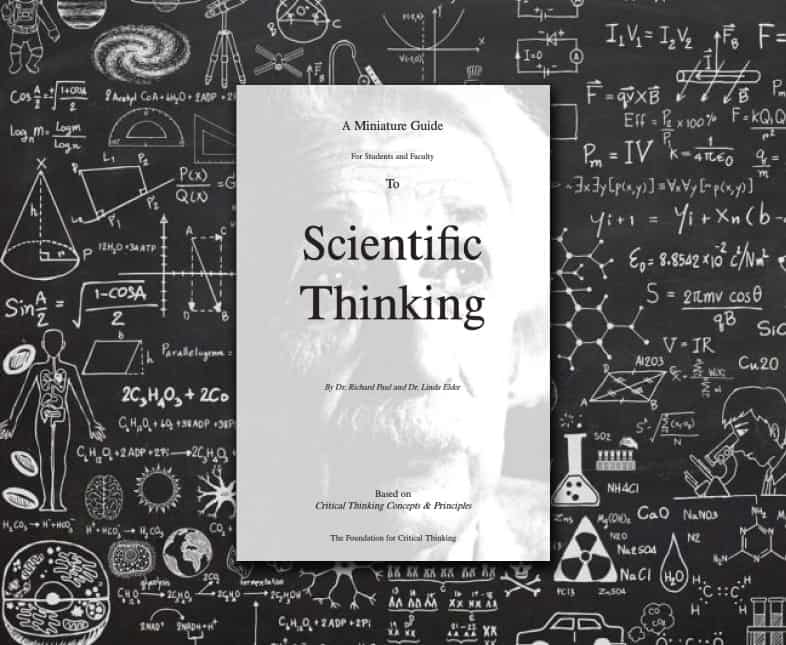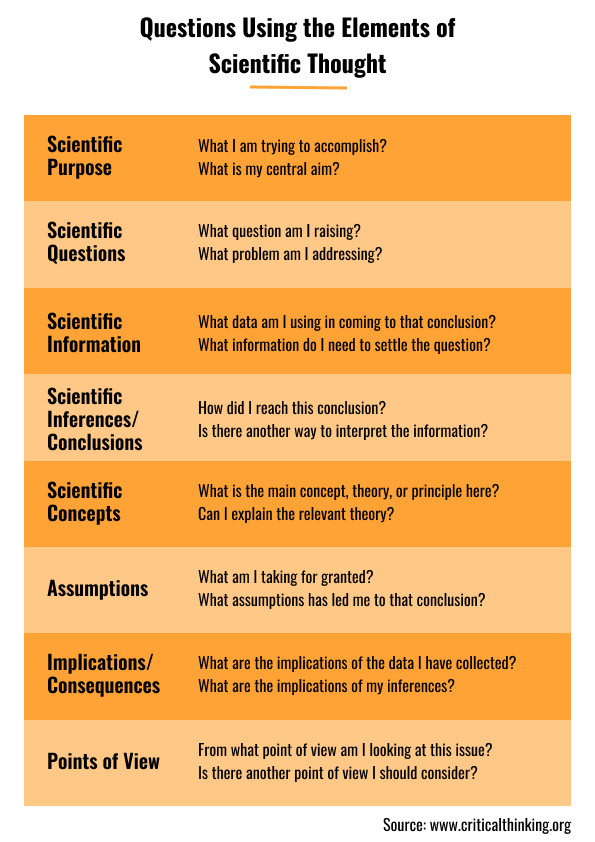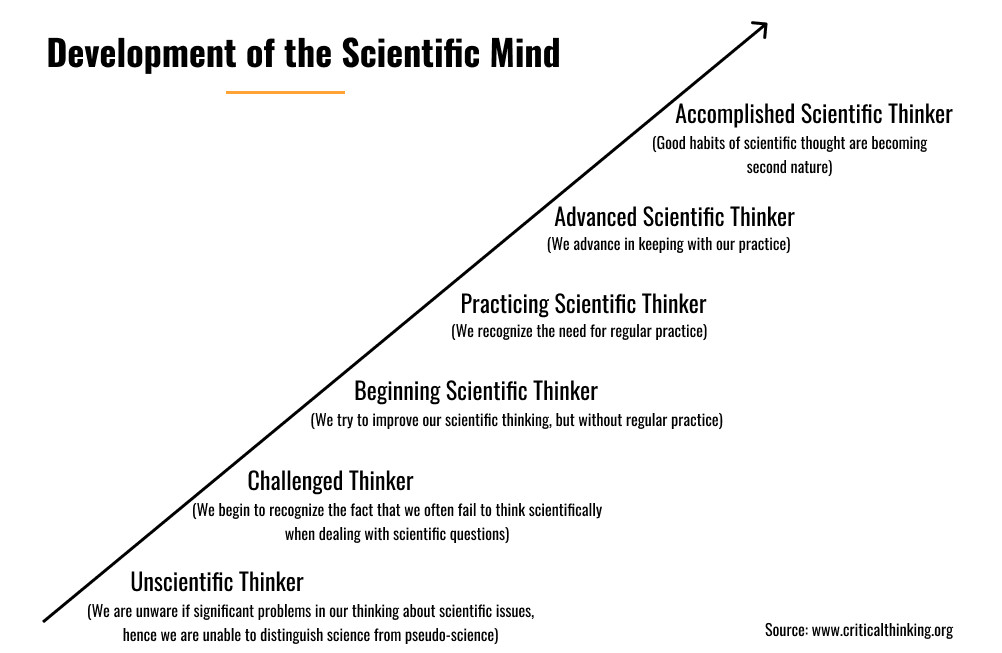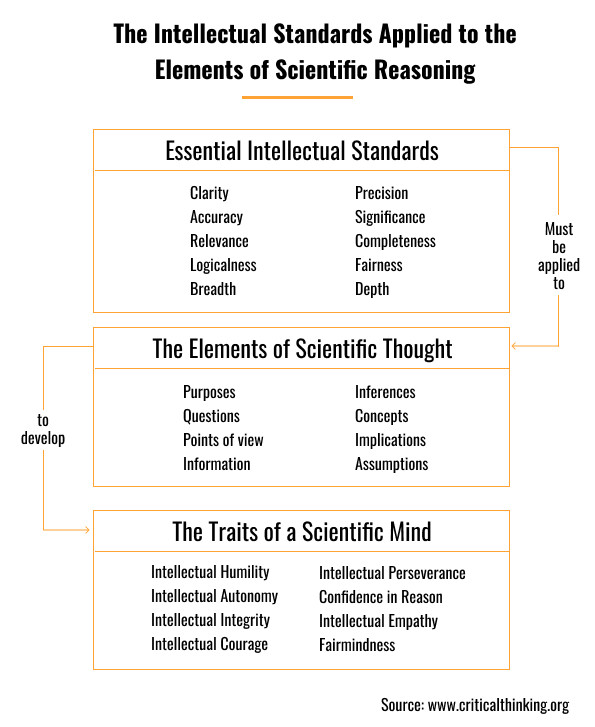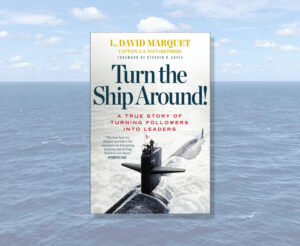Download this executive summary in PDF: A Miniature Guide For Students and Faculty to Scientific Thinking by Dr. Richard Paul
Why Scientific Thinking
The quality of our life depends on the quality of our thoughts. However, our thinking is often biased, partial, and uninformed. Rigorous and precise thoughts are a habit that must be cultivated.
Scientific thinking is imposing intellectual standards and a structure upon our thinking.
A scientific thinker will raise questions and problems, and formulate them clearly.
Data and information will be gathered and interpreted to formulate some well-reasoned conclusions and solutions to be tested against criteria and standards.
The scientific thinker will recognize his scientific assumptions and their implications and practical consequences.
The purpose is to propose solutions and communicate them effectively with others.
A Checklist for Scientific Reasoning
Scientific Thinking Seeks to Quantify, Explain, and Predict Relationship In Nature
Scientific thinkers believe that there is a law of nature. In the same conditions, the same causes will have the same effects at any time.
Scientific thinkers:
- Observe
- Design experiments
- Strive for exact measurement
- Seek to formulate physical laws
- Study related or similar phenomena
- Formulate general hypotheses or physical theories
- Seek to test, modify, and refine hypotheses
- When possible, scientists seek to establish general physical laws as well as comprehensive physical theories
Scientific Thinking Requires Precision
Scientific thinking requires distinguishing the different causal relationships:
- Sufficient causes
If smoking were a sufficient cause of lung cancer, everyone who smoked would get lung cancer.
- Necessary causes
If smoking were a necessary cause of lung cancer, only smokers would get lung cancer; non-smokers would never get it.
- Necessary and sufficient causes
If smoking were both a sufficient and necessary cause, everyone who smoked, and only those who smoked would get lung cancer.
- Contributory causes
If smoking were a contributing cause of lung cancer, other things held constant, smokers would have a higher rate of lung cancer than non-smokers, which of course they do.
Another set of causality:
- Linear causality
A causes B, but B has no effect on A
- Circular causality (vicious/benign circle)
A causes B, which in turn produces an increase in A, which causes more B, etc.
- Negative feedback causality
A causes B, and an increase in B causes a decrease in A
- Chain reaction causality
A small initial cause, such as a tiny spark, can start a chain reaction.
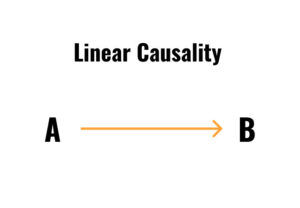
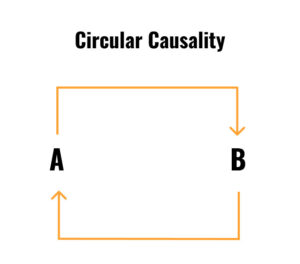
Experimental Thinking Requires Experimental Controls
The scientific thinker will design experiments to determine which factors are essential to the causal effects among the variables.
For example, does drinking red wine in France reduce the incidence of heart attack compared to other countries in northern Europe where red wine is less popular?
Other variables are associated with the red wine such as the diet, work habits, climate, smoking, and inherited predisposition.
Intellectual Standards in Scientific Thinking
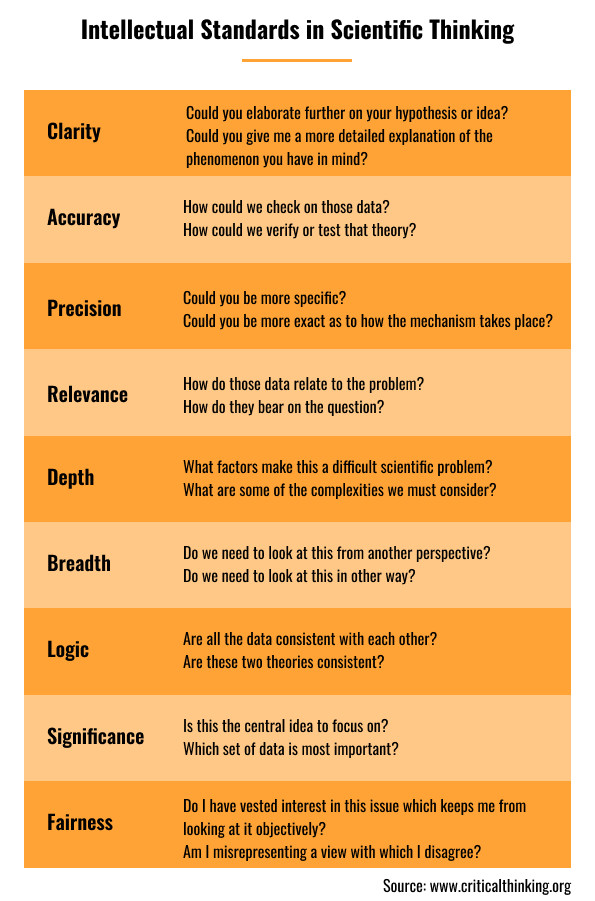
The Traits of a Scientific Mind
- Intellectual humility
Knowledge of ignorance, sensitivity to what you know and what you don’t know. It implies being aware of your biases and the limitations of your viewpoints.
- Intellectual autonomy
Thinking for oneself while adhering to standards of rationality without uncritically accepting the viewpoints of others.
- Intellectual integrity
Hold yourself to the same intellect standards you expect others to honor (no double standards).
- Intellectual courage
Challenge the beliefs of your culture and groups to which you belong even if your view is unpopular.
- Intellectual perseverance
Disposition to work your way through intellectual complexities.
- Confidence in reason
Using standards of reasonability as the fundamental criteria by which to judge whether to accept or reject any belief or position.
- Intellectual Empathy
Considering the viewpoints and reasoning of our opponents.
A Critical Approach to Scientific Thinking
The advantage of scientific thinking is that you will remember deeply the terminology, facts, and procedures as you thought through them. You don’t need to accumulate and digest a ton of facts and learn them by heart.
People who don’t practice scientific thinking don’t challenge their old beliefs and ideas that may be false. Even if we learn science at school, the textbooks don’t teach us to criticize our inner beliefs.
At school, we mindlessly apply, measure, and combine liquids without understanding the scientific concepts behind these experiments. The link between the observation and the conclusion is not clearly understood. The student lacks scientific reasoning.
Scientific thinking is not a matter of running through a set of steps one time. Rather is a kind of thinking in which we continually move back and forth between questions we ask about the world and observations we make, and experiments we devise to test out hypotheses and models.
The habit of thinking scientifically is more important than getting the correct answer through a process we do not understand.
By passively accepting what textbooks tell us, the scientific attitude and mindset are lost.
Download this executive summary in PDF: A Miniature Guide For Students and Faculty to Scientific Thinking by Dr. Richard Paul

